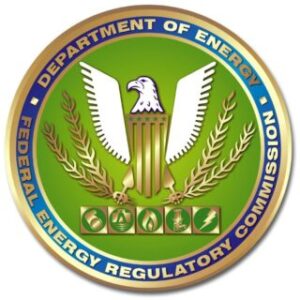
INGAA filed comments on January 7, 2013 in response to a FERC notice scheduling a technical conference on gas-electric information sharing. INGAA appreciates FERC’s initiative to foster coordination between interstate natural gas pipelines and electric generation dispatching entities. INGAA also supports improving electric reliability through enhanced coordination, including enhanced information sharing, where useful and legally permissible.
INGAA stated that it looks forward to hearing from “dispatching entities" (ISOs, RTOs and, in bilateral markets, individual electric utilities) on what additional pipeline information, beyond the data INGAA members already make publicly available, would advance electric reliability if it was shared. INGAA noted that to the extent FERC endorses information sharing enhancements it must also affirm that the endorsed enhancement will not constitute undue discrimination or cause interstate pipelines to be exposed to increased civil liability.
INGAA stated that it is not in a position to make specific proposals or presume what dispatching entities might propose. Rather, INGAA suggested three questions for FERC and the gas-electric coordination stakeholders to consider as they assess specific suggested enhancements to current information sharing.
First, does the suggested enhancement to gas-electric information sharing seek information that pipelines already provide? INGAA argued that assessing a proposed information sharing enhancement should start by looking at the information that is already publicly available. In an effort to establish a baseline for this assessment, the comments described the substantial body of information that interstate natural gas pipelines already provide publicly through electronic posting.
Second, will the suggested enhancement to gas-electric information sharing contribute to improving electric reliability? INGAA noted the sole purpose of an enhancement to information sharing should be to foster improved electric reliability. Thus, any enhancement should:
· Help improve a dispatching entity’s electric generation scheduling and dispatching in a given electric market;
· Reflect only operating information on capacity available to be nominated and utilized on the transporting pipeline; and
· Relate to the specific contracted-for capacity of a particular generator or natural gas supplier to the generator that might address a particular real-time concern.
Third, can the suggested enhancement to gas-electric information sharing be accommodated within existing legal requirements? INGAA explained that interstate pipeline information sharing is subject to a number of legal standards. The Natural Gas Act and the FERC’s jurisprudence governing open access and undue discrimination prohibit pipelines from unduly discriminating between similarly situated shippers or granting an undue preference to “any person” whether a shipper or a non-shipper (which conceivably could be construed to cover a dispatching entity). FERC’s regulations also prohibit a pipeline from using a third party as a conduit of non-public transmission function information to the marketing function employees of the pipeline or its affiliates. Finally, some have suggested that information sharing conceivably could exposure a pipeline to civil damages to the extent unauthorized disclosure causes a generator economic harm.
INGAA insisted FERC take these legal requirements into account before approving any suggested enhancement to gas-electric information sharing. In authorizing the sharing of any additional data, FERC must affirm that such sharing will not constitute undue discrimination given the FERC’s overriding public policy interest in ensuring reliable electric generation. Even if a change to the timing or substance of pipeline information sharing enhances gas-electric coordination, FERC must provide pipelines the assurance that the communications FERC intends pipelines to exchange with dispatching entities are permissible under the Natural Gas Act and its regulations. INGAA also requested FERC clarify that pipelines participating in enhanced information sharing with dispatching entities to promote electric reliability should not be subject to civil liability to generators as a result of that participation.







